
13 minute read
A Semester of Change
asemester oF ChaNge
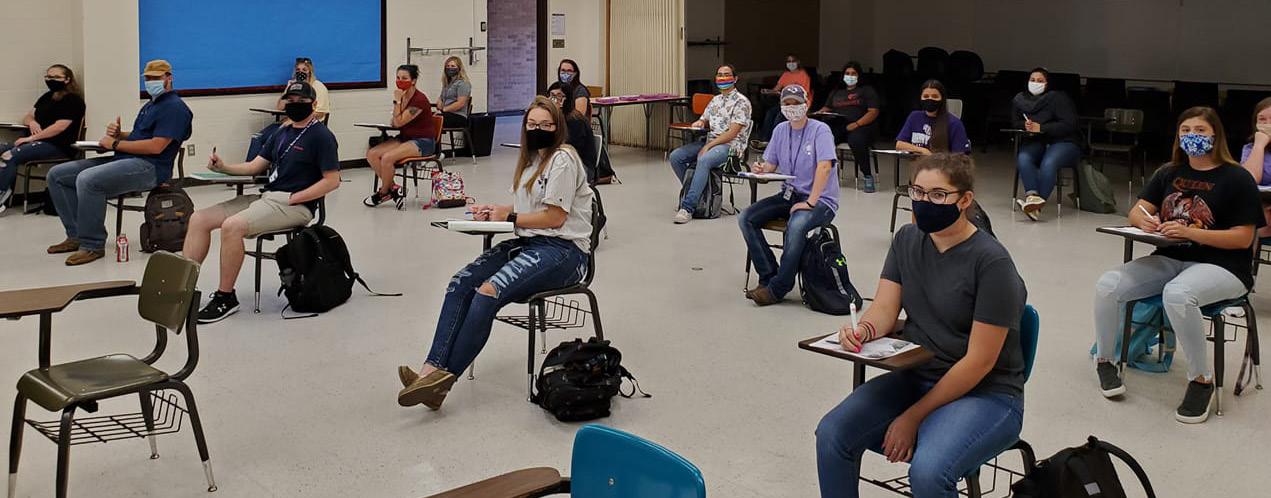
Advertisement
The COVID-19 pandemic required academic institutions across the U.S. to rapidly modify courses and adapt to 100-percent online, remote delivery following campus closures. SFA was not immune to this trend, and in an effort to protect the health and safety of the SFA and Nacogdoches communities, in-person classes for the spring and summer semesters were canceled beginning March 16, 2020. While some academic programs were easily modified to fit an online format, the field-intensive, hands-on classes and labs that define SFA’sArthur Temple College of Forestry and Agriculture posed more of a challenge. “Our professors basically had two days to adapt their courses and labs to an online format to complete the semester,” said Dr. Hans Williams, dean of the Arthur Temple College of Forestry and Agriculture. “Our programs in this college do not lend themselves to remote delivery very easily, so when they had to pivot to online delivery, it really required significant effort on the part of the faculty members to make that change.” Some of these innovative techniques, such as those implemented by Dr. Stephanie Jones, SFA assistant professor of animal science, also benefited students outside of SFA. In Jones’ upper-level equine reproduction course, students study all aspects of equine reproduction — from endocrinology to birth, known as foaling. To allow students to remotely monitor mares preparing for birth, known as parturition, Jones installed commonly used home security cameras in designated foaling stalls at the SFA Equine Center. Upon learning of Jones’ use of cameras to monitor parturition, representatives from Tarleton State University’s College of Agricultural and Environmental Sciences reached out to her.
“They did not have the ability to provide a similar remoteviewing opportunity for their agriculture students and asked if SFA could share these live, remote videos,” Jones said.
Ultimately, despite being dispersed across the state, SFA and Tarleton State University students experienced the birth of
two foals that now call the SFA Equine Center home. In order to provide students with virtual field experiences, other professors stepped in front of the camera and filmed themselves delivering lectures and demonstrating in-field techniques, such as fuel load measurements and pole classification in state and national forests.
Environmental science teaching assistants also stepped in to deliver labs, recording themselves conducting labs in a stepby-step manner so students could see the process occurring. The data obtained from this process was then provided to students to interpret and write a lab report.
Perhaps one of the most logistically challenging summer courses to adapt to an online format was Forestry Field Station, which traditionally comprises six weeks of immersive, field-based lectures and labs.
“In March we immediately started thinking about field station, because it is a really foundational course for our students,” Williams said. “It sets the baseline for a lot of what we do, especially in the upper-level courses.”
26| Arthur temple College of foreStry And AgriCulture

Williams said that while there was an initial discussion to cancel the course, it was quickly decided that was not a feasible option for a number of reasons, including the effect it would have on student’s graduation schedules.
Thus, forestry faculty members adopted a hybrid approach in which students experienced remote delivery of material during the summer semester to be supplemented with inperson field experiences during the fall semester.
Williams said the majority of these field experiences take place on Fridays and Saturdays; and, while this may be slightly disruptive to student schedules, the benefit outweighs the cost.
Students returned to the SFA campus in August for the fall 2020 semester to find numerous safety precautions in place. Examples include limited van capacity, mandatory mask wearing, classroom layout that meets physical distancing recommendations and staggered lab sessions to
Forestry students in Dr. Jeremy Stovall’s silviculture course wear face masks during lab exercises. accommodate large class sizes.
Professors also altered the scheduling of course material in the event the SFA campus has to close once again.
“Some faculty members are moving key field experiences to the front of the semester so if for some reason we have to pivot to remote delivery and send students home, at least most of the key field components we want them to learn have been covered,” Williams said.
While higher education has trended toward providing more online course options during the past decade prior to the COVID-19 pandemic, Williams said he doesn’t foresee the college ever transitioning to 100-percent online delivery once the pandemic is over.
“We’re known for our hands-on teaching,” Williams said. “It’s our hands-on teaching and in-field experiences that make our students successful in their careers once they

graduate.”
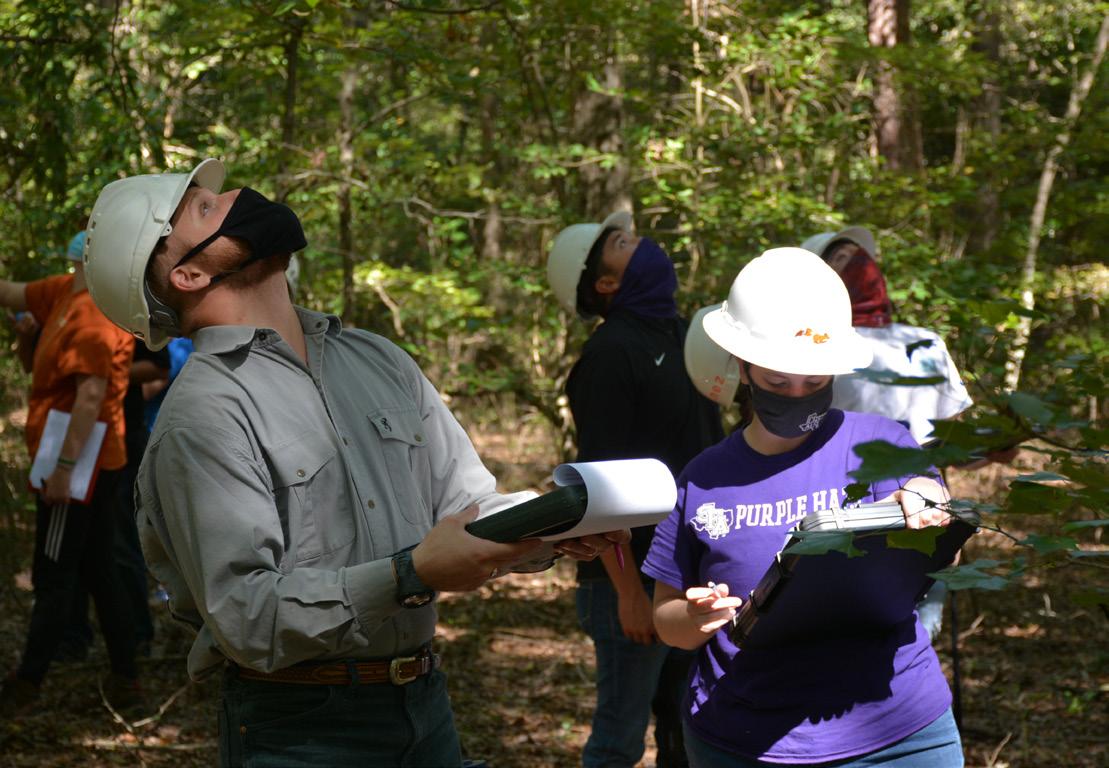
Numerous safety precautions were implemented for the fall 2020 semester, including limited van capacity, mandatory mask wearing and classroom layout that meets physical distancing recommendations.
fAll 2020 |27

Alumnus named COO of the Texas Parks and Widlife Department
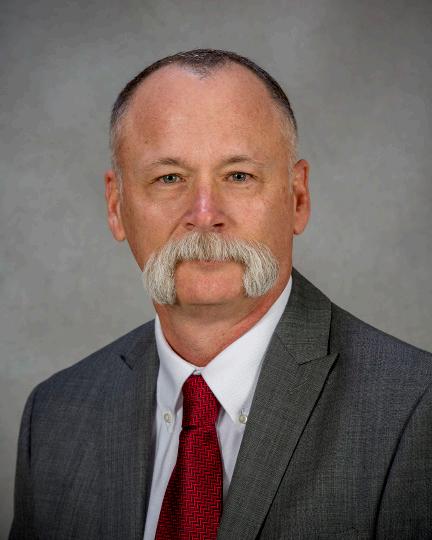
SFAalumnus Clayton Wolf has been named the chief operating officer of the Texas Parks and Wildlife Department.
Wolf, who graduated from SFA with a Bachelor of Science in Forestry with a concentration in forest wildlife management, has a 27-year career with TPWD and previously served as the statewide wildlife division director.
“Any success I have achieved is because of my parents, all the great people around me and SFA’s Arthur Temple College of Forestry and Agriculture,” Wolf said.
In this position, Wolf will work within the executive office of TPWD as a liaison between the Texas Parks and Wildlife Commission and TPWD staff members, and he will be responsible for the overall operation of the statewide department that manages more than 770,000 acres of wildlife management areas and 600,000 acres of state parks, natural areas and state historic sites. “Having been with TPWD for many years, I’m “Any success I have achieved is because confident we can utilize the many success stories within the agency as models to make TPWD even of my parents, all the great people more effective and efficient in delivering our mission,” Wolf said. “Externally, our work must be around me and SFA’s Arthur Temple relevant to all Texans, whether they enjoy wildlife as hunters, anglers, hikers, campers, or they simply College of Forestry and Agriculture.” enjoy watching wildlife in their backyards and local communities.”
The mission of the TPWD is to manage and conserve the natural and cultural resources of Texas and to provide hunting, fishing and outdoor recreation opportunities for the use and enjoyment of present and future generations. It is a recognized national leader in implementing effective natural resources conservation and outdoor recreational programs.
Wolf earned a master’s degree from Texas A&M University and, prior to beginning his career with TPWD, worked as a private sector wildlife biologist in Southeast Texas. He is a member of the Arthur Temple College of Forestry and Agriculture’s advisory council, which comprises a select group of accomplished professionals representing all disciplines within the college who dedicate their time, insight and expertise to enhancing the mission, academic rigor and success of the college.
28| Arthur temple College of foreStry And AgriCulture

Dr. David Hyink named Distinguished Alumnus
In recognition of nearly half a century of contributions to the field of forestry and forestry education, Dr. David Hyink received the 2020 Distinguished Alumni Award from SFA’s Arthur Temple College of Forestry and Agriculture.
After more than two decades, Hyink retired in 2007 as the scientific advisor and chief forestry scientist for Weyerhaeuser Company, one of the world’s largest private owners of timberlands. During his tenure, Hyink played a major role in the development and implementation of forest stand growth and yield forecasting systems for loblolly pine, Douglas-fir and Western hemlock. In addition to this primary research, Hyink also managed additional cooperative research in silviculture, wood quality, and growth and yield.
Hyink’s academic contributions are extensive with more than 55 academic publications, invited papers and presentations. Additionally, he has served as affiliate assistant professor and Weaver Lecturer atAuburn University, adjunct professor at the University of Idaho, affiliate professor at the University of Washington, and assistant professor at Virginia Polytechnic Institute and State University.
“As alumni of SFA, David and his wife, Stephanie, have an exemplary record of giving back by supporting forestry and education students with scholarships and promoting student success through career mentoring,” said Dr. Hans Williams, dean of SFA’s Arthur Temple College of Forestry and Agriculture. “David’s distinguished professional career with Weyerhaeuser, combined with his significant contributions to society, makes him an outstanding role model for our students and an ambassador representing the long-standing success of SFA’s forestry program.”
Hyink’s service to the forest industry includes, but is not limited to, membership on the Science Advisory Board for the U.S. Environmental Protection Agency and U.S. Forest Service’s Forest Response Research Program, as well as the Society Hyink’s academic contributions are of American Foresters. extensive, with more than 55 academic “I am very honored and humbled by this award, as it not only recognizes and validates my career publications, invited papers and accomplishments but also shines a very valuable light on the impact the Arthur Temple College of Forestry presentations. and Agriculture plays in the lifetime successes of its students,” Hyink said.
Hyink received a Bachelor and Master of Science in Forestry from SFA and a doctoral degree from Purdue University. He is the owner of Deerfield Consulting, which provides biometric and statistical support to clients in South Dakota.
fAll 2020 |29

Terry Anderson
Terry Anderson is the founder and principal in Conservation Equity Partners, as well as co-owner and principal of its sister company, Wildlife Systems Inc., a hunting and outdoor recreation-based enterprise.
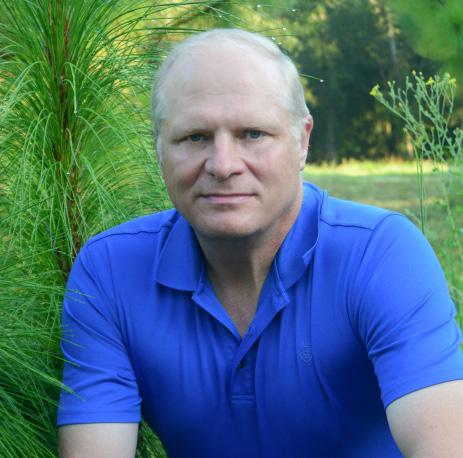
Anderson said Conservation Equity Partners merges traditional natural resource management, real estate investment and ecological services while developing, operating and monetizing integrated conservation strategies. Examples of projects include rural land investment, regulatory-driven ecological offsets and legacy asset development.
Conservation Equity Partners is based in Nacogdoches, allowing Anderson to share the company’s mission and projects with current forestry students.
“I am blessed to have developed and acquired a portfolio of beautiful and ecologically diverse properties, which I strive to make available to SFA students as an extension of their outdoor classrooms and learning opportunities,” Anderson said. “The Conservation Equity Partners business model is based on contributing 10 to 15% of our time in a volunteer and educational capacity.”
Anderson spent the first two decades of his career in the private sector, primarily focused on ecological markets and mitigation banking. His portfolio includes some of the most financially successful and highest-quality privately-funded conservation and restoration projects in the country.
“I have witnessed dramatic and often unprecedented changes to the landscape, culture and human dimension of the conservation arena,” Anderson said. “Along the way, I have constantly attempted to evolve personally and professionally.”
Anderson earned a Bachelor of Science in Forestry in 1991.
“As one of my good friends and conservation mentors Carl Frentress once said, ‘Stewardship of natural resources is a component of citizenship and our well-being as a society is driven by how our natural resources are handled,’’ Anderson said. “I hope my career so far, in this regard, has provided more benefit than harm.”
30 Arthur temple College of foreStry And AgriCulture

Kasey Cox
When misfortune occurs and residents of North Central Texas reach out to first responders, alumna Kasey Cox is one of many who ensures they receive prompt assistance in their time of need.
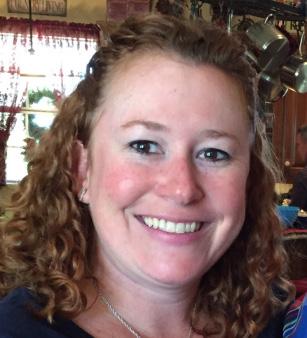
As the North Central Texas Emergency Communications District 911 geographic information systems data administrator, Cox works on the frontline to maintain a healthy GIS infrastructure by monitoring servers as well as database health and permissions, services, applications and virtual machines. She also ensures the district’s public safety applications are up to date with the state.
“My team at NCT911 is responsible for providing a map to 911 telecommunicators that can help them locate a caller, give situational awareness about the location and help them get first responders to the caller’s location as soon as possible,” Cox said. “Our map is active in 43 public safety answering points across 14 counties and services about 1.6 million citizens.”
Cox, who holds a Bachelor of Science in environmental science and a Master of Science in geospatial science from SFA, said fate seemingly brought her to her current career. Following the end of a job with an engineering firm, Cox took a temporary job with NCT911 while pursuing additional career options. During her time there, she said she greatly enjoyed the work and learning about all the agency did for communities and public safety.
“I did not know about Next Generation 911, which involves transferring 911 infrastructure to an innovative solution,” Cox said. “Before taking the temp job, I never knew the extent of GIS in public safety. The temp job only lasted about three months, but it really made an impression on me, and I made some great connections.”
Following this temporary position, Cox secured the permanent position she now holds.
“I am a part of an agency that is known for being an industry leader and early adopter of geospatial technologies,” Cox said. “We have been recognized for incorporating IoT, or the internet of things, and crowd-sourced data into public safety answering points.”
Cox said they are now exploring the use of unmanned aerial systems for rapid data collection, as well as 3D display to more accurately locate callers in large public or residential structures.
fAll 2020 |31

Matt Buckingham
As the state of Texas grows at an unprecedented rate, so does its transportation infrastructure. As a biologist with the Texas Department of Transportation’s EnvironmentalAffairs Division in Lufkin, Matt Buckingham diligently works to reduce the negative impacts these projects may have on the state’s flora and fauna.
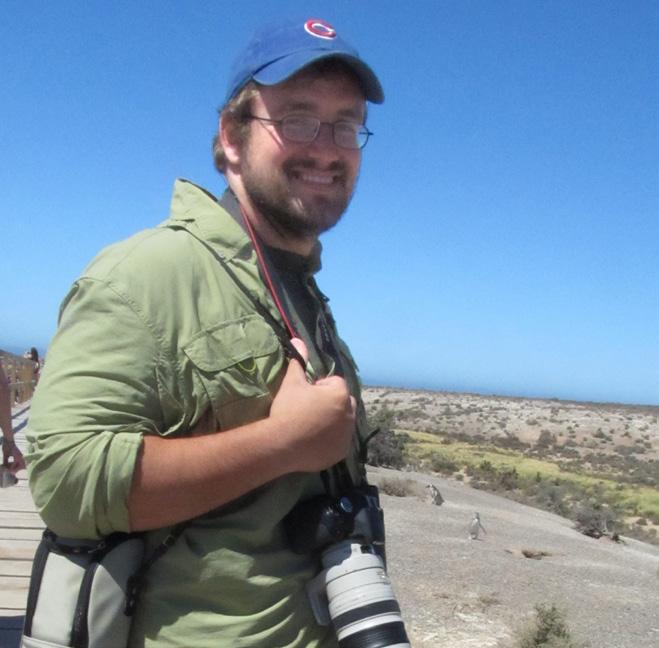
“My job is to ensure that this [transportation growth] occurs in a way that is not detrimental to our state’s diverse plant and animal species, and to contribute to our understanding of how plants and animals interact with our roads so that we may better plan and develop measures to protect and enhance their populations,” Buckingham said.
Buckingham’s primary duties include evaluating the effects of transportation projects on federally and state listed species, coordinating with state and federal agencies, and ensuring compliance with regulations, such as the Endangered Species Act and Migratory Bird Treaty Act. To accomplish this, Buckingham regularly works with the U.S. Fish and Wildlife Service, Texas Parks and Wildlife and a number of universities, including SFA.
After earning a Bachelor of Science in forest wildlife management and a Master of Science in biology from SFA, Buckingham worked for a land trust in Houston, which allowed him to conserve important habitat in Southeast Texas. Despite his love for that job, Buckingham knew he wanted to return to deep East Texas.
“My time at SFA opened the door in many ways for me,” Buckingham said. “During my time at SFA, I also fell in love with the natural communities of the Pineywoods.”
Buckingham also shares his passion for the natural world through photography and blogging.
“Today, photography and nature go hand and hand for me,” Buckingham said. “I love sharing my passion with the world, and photography has provided an outlet to do so.”
Buckingham’s natural history blog can be found at mattbuckinghamphotography.com.
32 Arthur temple College of foreStry And AgriCulture



